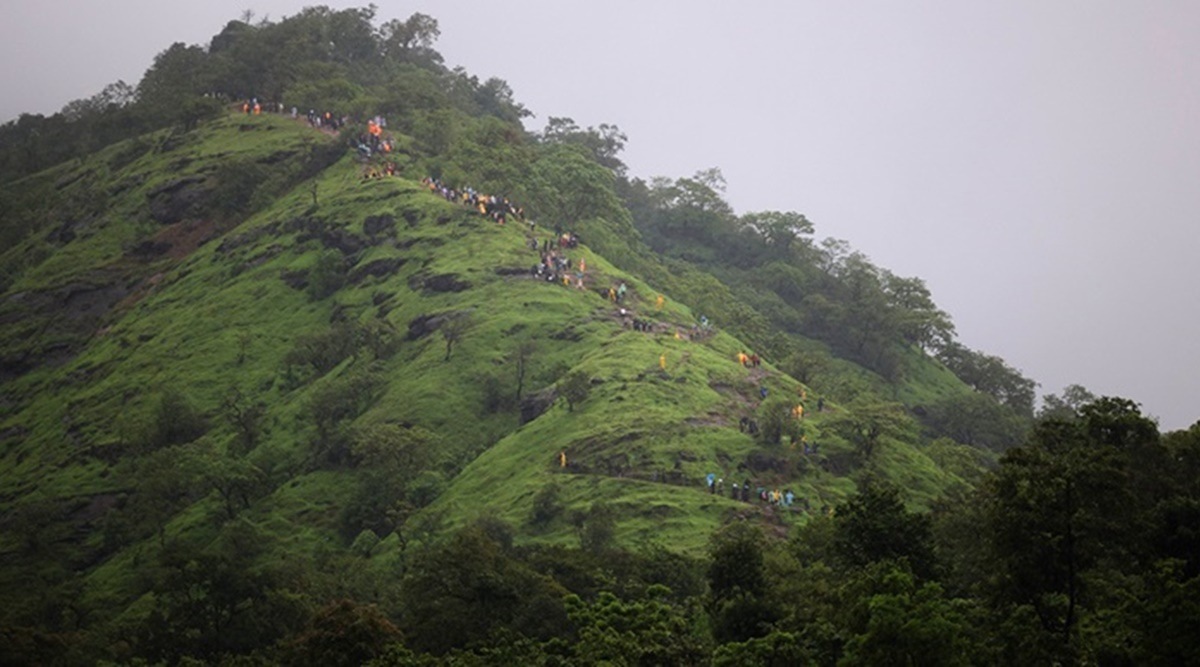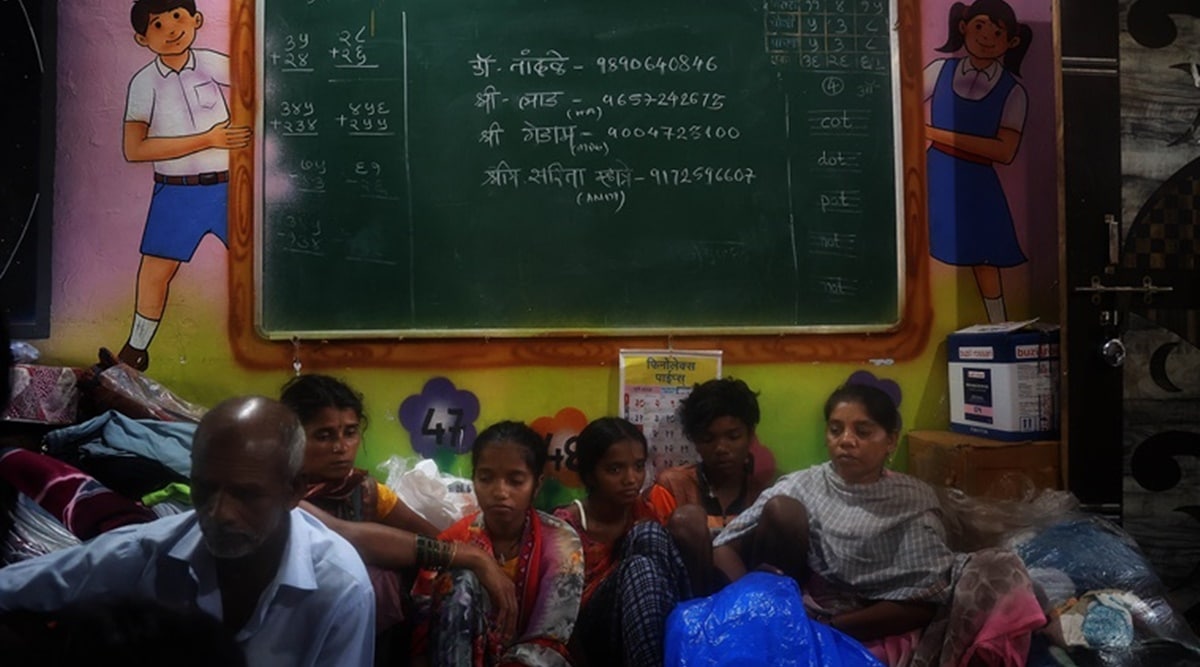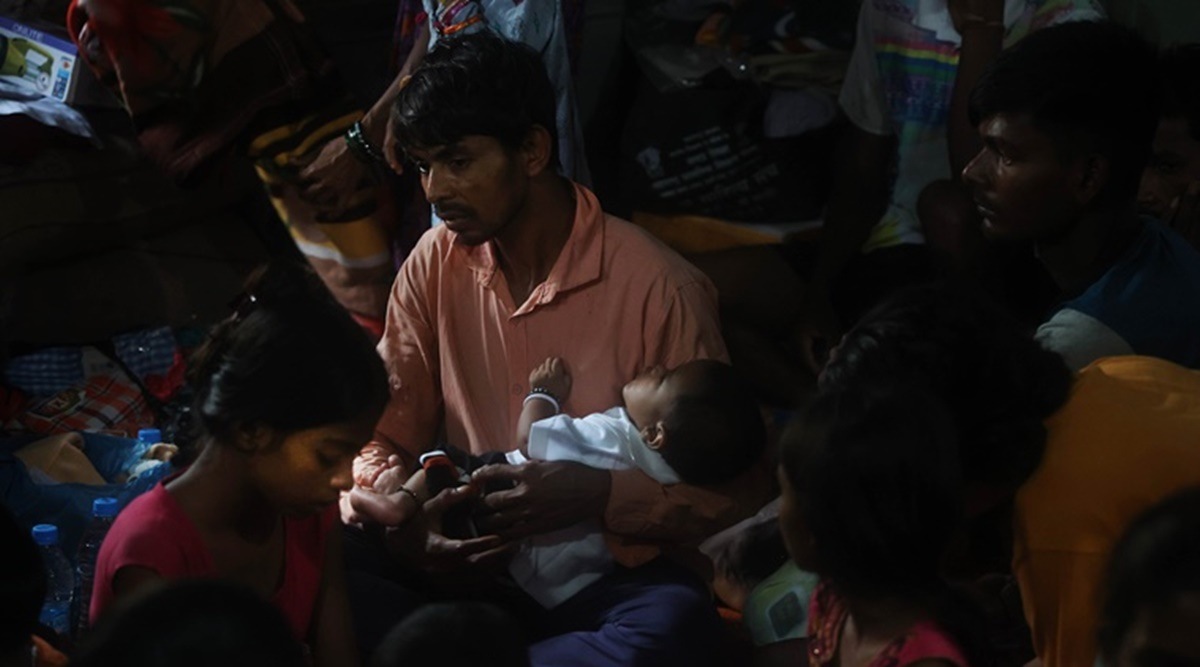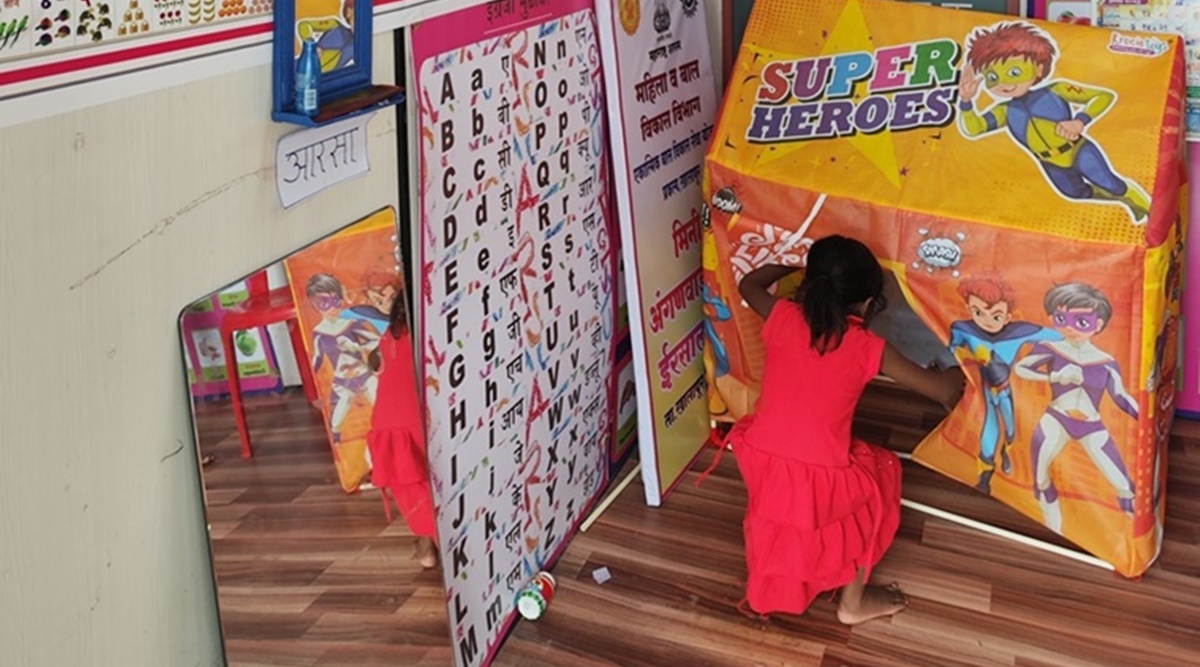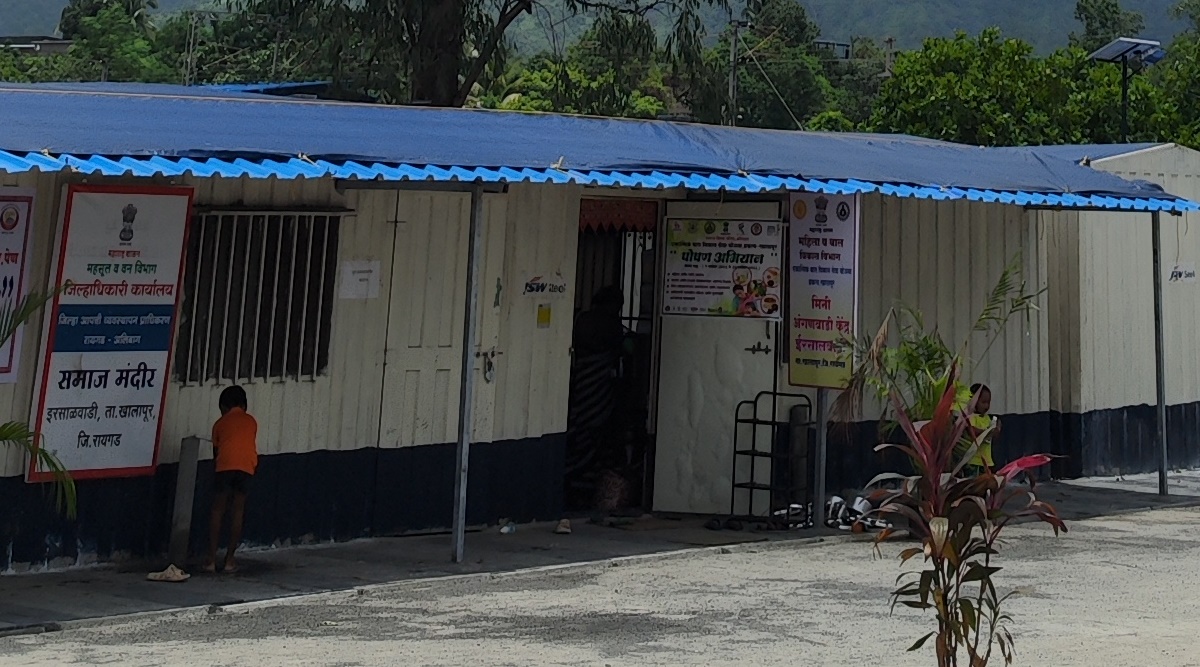It’s a colony of containers – 42 in all – each with a nameplate of the ‘head of the family’. Container No. 23 is Varsha Suresh Pardhi’s. All of six years old, Varsha stays here with her younger sisters Vidisha, 4, and Urmila, 3.

A week after a devastating landslide on July 19 wiped out the village of Irshalwadi in Maharashtra’s Raigad district, killing 84 residents, the district administration worked to move the survivors – many of them children who were away from home that night – to a camp in nearby Chouk village.
A month later, The Sunday Express visits their temporary homes – blue and white containers, each with cots, water purifiers, gas stoves, cupboards and even planters.
 The containers at Chouk village in Maharashtra. (Express photo by Nayonika Bose)
The containers at Chouk village in Maharashtra. (Express photo by Nayonika Bose)
Varsha and her two younger sisters were visiting their maternal grandmother near Panvel, over 20 km away, when the landslide struck, killing their parents Suresh and Yogita and their youngest sister Sailee, who was three months old.
Varsha’s aaji (paternal grandmother) Kamli Mahadu Pardhi, who stays in Container No. 21 with her son Manglu, says the children spend the day at the anganwadi or watching videos on their uncle’s phone. “When we came here, we put some photos that we had of their parents and sister on the walls of this container. But the children would keep crying, asking for their parents. So we have kept the photos away for now,” says Kamli. Besides her son, daughter-in-law and a grandchild, Kamli lost her husband Mahadu and sister-in-law in the landslide.
Devastation and after
Perched on a hill leading up to the Irshalgad fort, the village of Irshalwadi, around 60 km from Mumbai, is usually frequented by tourists during the monsoons. But the rains of July 19 proved to be particularly treacherous — around 10.45 pm, a landslide wiped out most of the village of 44 homes and many among its population of over 200.
Story continues below this ad
In a search operation led by the National Disaster Response Force (NDRF), 27 bodies were recovered by July 27. The operation was called off as heavy machinery needed for the search could not be carried up the hill leading to the village.
1/11

To house the 138-odd survivors of the landslide, the administration set up a temporary camp with 42 containers. (Express photo by Narendra Vaskar)
2/11

The camp, with 42 containers, has separate facilities for the police and staff who, officials said, are on duty 24x7 to attend to the residents. (Express Photo by Narendra Vaskar)
3/11

The camp has a medical centre, a community kitchen, an aganwadi and a space to store supplies. (Express Photo by Narendra Vaskar)
4/11

The camp, set up swiftly with 42 containers which houses the 138-odd survivors, has separate facilities for the police, staff of the revenue administration, a medical centre, a community kitchen, an anganwadi and a space to store supplies. (Express Photo by Narendra Vaskar)
5/11

Many of these containers – at least 13 of the 42 -- are now home to the orphans of Irshalwadi. (Express Photo by Narendra Vaskar)
6/11

Varsha Suresh Pardhi stays in Container No. 23 with her younger sisters Vidisha, 4, and Urmila, 3. Their parents and their youngest sister Sailee, who was three months old, died in the landslide. (Express Photo by Narendra Vaskar)
7/11

Radhika Pappu Pardhi, 14, and her sisters Monika, 10, and Madhuri, 3, lost their parents on July 19. While one of her relatives managed to rescue Madhuri, Radhika and Monika were lucky since they were staying the night at their mama’s house near their school in Mangaon.(Express Photo by Narendra Vaskar)
8/11

Among those who survived is a group of youngsters who had gathered in an abandoned school in the village to play
PUBG. Now, in the containers, they spend all their time playing the game.(Express Photo by Narendra Vaskar)
9/11

Varsha’s grandmother Kamli stays in Container No. 21. "The children would keep crying, asking for their parents. So we kept their photos away." (Express Photo by Narendra Vaskar)
10/11

A week after the July 19 landslide wiped out Irshalwadi village, the administration moved the survivors to containers set up in nearby Chouk village. (Express Photo by Narendra Vaskar)
11/11

District officials are also in the process of opening bank accounts and assisting survivors in the preparation of documents lost in the landslide. (Express Photo by Narendra Vaskar)
Among those who survived the tragedy are children who had been studying at residential Ashram schools in Chikal or Panvel, 20 km away, since Irshalwadi has no school of its own.
To house the 138-odd survivors, the administration set up a temporary camp in Chouk village, around 4 km away, on a piece of land where a petrol pump stood earlier. The camp, set up swiftly with 42 containers, has separate facilities for the police, staff of the revenue administration, a medical centre, a community kitchen, an anganwadi and a space to store supplies.
Officials in the administration said the plan is to rehabilitate the Irshalwadi survivors by moving them within six months to permanent homes being built by the town planning authority, CIDCO.
Story continues below this ad
 With the wounds of the tragedy still raw, many are struggling in Chouk. (Express photo by Nayonika Bose)
With the wounds of the tragedy still raw, many are struggling in Chouk. (Express photo by Nayonika Bose)
District Collector Yogesh Mhase said that various processes are underway — including providing compensation, granting legal custody of minor children to relatives who are willing to take care of them, and ensuring that the children are back in school soon. District officials are also in the process of opening bank accounts and assisting survivors in the preparation of documents lost in the landslide.
‘PUBG saved our lives’
There was at least one group that was lucky not to be in Irshalwadi that night – a set of about 10 boys who had gathered in an abandoned school in the village to play PUBG, like they did almost every other night. The old school building was among the few structures that did not get washed away in the landslide.
This group of boys, staying in the containers at Chouk, now spend most of their time playing PUBG. “This game saved our lives,” says Ashok Madhu Bhutambara, 22, who lost five members of his family, including his parents.
 Boys playing PUBG at a container in Chouk village. (Express photo by Nayonika Bose)
Boys playing PUBG at a container in Chouk village. (Express photo by Nayonika Bose)
If earlier the boys, most of them school dropouts, helped their parents on the family farms, their days now look very different.
Story continues below this ad
Every morning, Ashok and the others gather in 24-year-old Parvat Pilya Pardhi’s Container No. 40 and spend hours playing PUBG. Others sit hunched over their phones, endlessly watching Instagram reels and YouTube videos. “Sometimes in the evenings, we play football or volleyball,” says Ashok.
Ashok is a clear “PUBG leader” among his band of friends. Wearing ‘thumb sleeves’ to enhance his gaming speed –sold in Chouk’s local market as “fingers” — Ashok pauses only to scribble notes on a sheet of paper on “camera sensitivity”.
The 22-year-old says he hopes to turn his PUBG passion into something more serious – “maybe a gaming streamer”. Last week, Ashok started a gaming YouTube channel.
“He is too good. He has been teaching us how to play the game better,” says Bharat Ragho Dore, 14, who lost his parents and brother to the tragedy.
Story continues below this ad
With breakfast, lunch, tea and dinner served in the community kitchen, the cooking space in most containers, like Parvat’s, is mostly unused. “We want to cook but aata kaun shikavnaar aamala (who is going to teach us now?). My mother is not with me,” says Pravin Pandurang Pardhi, 23, who is the only sole survivor in his family – he lost his parents and a sibling.
 With breakfast, lunch, tea and dinner served in the community kitchen, the cooking space in most containers is mostly unused. (Express photo by Nayonika Bose)
With breakfast, lunch, tea and dinner served in the community kitchen, the cooking space in most containers is mostly unused. (Express photo by Nayonika Bose)
While PUBG offers Pravin a respite from the emptiness of his days, he dreams of becoming a car mechanic. “I love automobiles. When officials of the district administration recently visited us to collect information about employment opportunities for us, I said I want to do a mechanical training course.”
But with the wounds of the tragedy still raw, many are struggling.
Kisan Ravindra Wagh, 20, who was among those at the abandoned school playing PUBG that night, says he can’t bear to play the game now. He lost his parents to the tragedy. “I keep watching videos on YouTube but I haven’t played PUBG since that day,” says Kisan.
Story continues below this ad
Kisan’s cousin Sakaram Wagh says the 20-year-old spends most of his time cooped up in the container. “Earlier, he didn’t eat much and did not talk to any of us. Now, he is slowly opening up and has started hanging out with his friends,” he says.
“I have signed up for some temporary work and will start working soon,” says Kisan.
Struggling to cope
Officials say it’s the younger lot of children who are struggling to cope with their loss.
Container No. 11 is where Waman Bhau Bhutambara, 16, stays with his siblings, 14-year-old twins Vanita and Ranjana. The three children were away at their Ashram school in Mangaon when the landslide struck, killing their parents and siblings.
Story continues below this ad
While Waman hangs out with his friends in some of the other containers, the sisters stay inside No. 11, stepping out only to meet their maternal uncle who is in a nearby container.
“We have no friends here since we stayed in our (Ashram) school. We would come home to Irshalwadi only during holidays. Most of our friends are in school. We can’t wait to go to school,” says Vanita.
“It will be good if they can go back to school soon and be with their friends. As soon as they get their bank passbooks and all the other paperwork is done, they will return to their schools,” says Vanita’s aunt.
1/6

The devastating landslide on July 19 wiped out the village of Irshalwadi in Maharashtra’s Raigad district, killing 84 residents. (Express photo)
2/6

On day two after the tragedy, rescuers going up the hill leading up to Irshalwadi village, which was washed away in the landslide. (Express photo by Amit Chakravarty)
3/6

Irshalwadi accident survivor at a temporary shelter in a school at the base camp on Aug 21.
(Express Photo by Amit Chakravarty)
4/6

Irshalwadi accident survivor at a temporary shelter in a school at the base camp on July 21.
(Express Photo by Amit Chakravarty)
5/6

Most children spend the day at the anganwadi. (Express photo by Nayonika Bose)
6/6

It's a colony of containers – 42 in all – each with a nameplate of the ‘head of the family’. (Express photo by Nayonika Bose)
Speaking to The Indian Express, doctors from the district administration said that with several younger children refusing to talk or eat, especially in the initial days of the tragedy, they have been holding regular counselling sessions in the camp.
Story continues below this ad
Radhika Pappu Pardhi, 14, and her sisters Monika, 10, and Madhuri, 3, lost their parents on July 19. While one of her relatives managed to rescue Madhuri, Radhika and Monika were lucky since they were staying the night at their mama’s house near their school in Mangaon.
The sisters now stay in Container No. 4. The tragedy and the sudden responsibility thrust on her has bestowed Radhika with a rare confidence.
“I spend most of my time with my sisters, but I also like talking to uncles and aunties in other containers. I will return to school once I get my bank passbook,” says Radhika as she keeps an eye on her sister, Madhuri, who, after running around in circles, heads to a tap outside her container and leaves it open. “Hey, stop it, baba. Tujhe kapde ole honaar (You’ll wet your clothes),” says Radhika, rushing towards her baby sister.

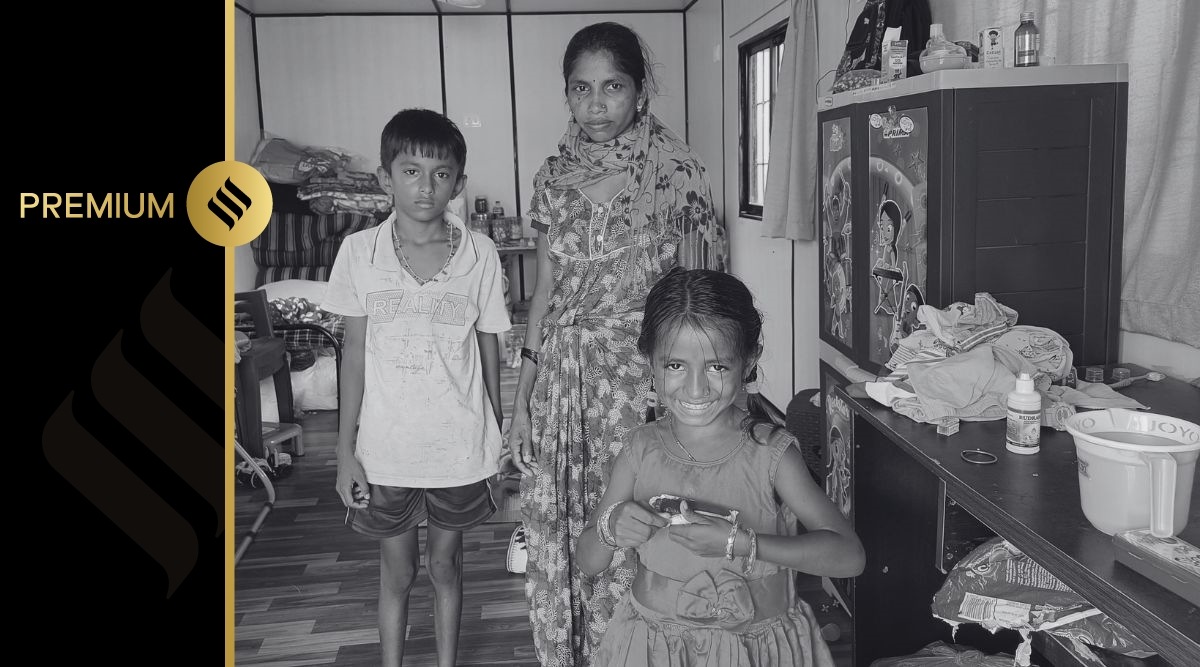

 The containers at Chouk village in Maharashtra. (Express photo by Nayonika Bose)
The containers at Chouk village in Maharashtra. (Express photo by Nayonika Bose)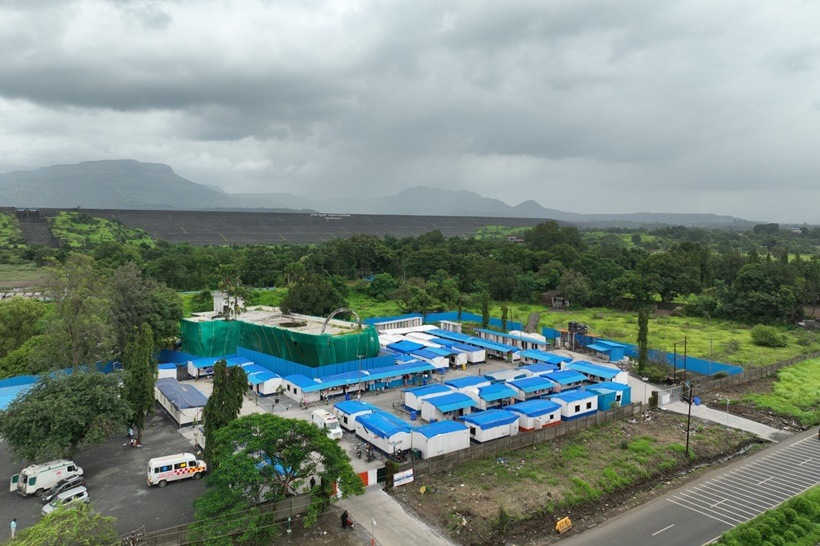
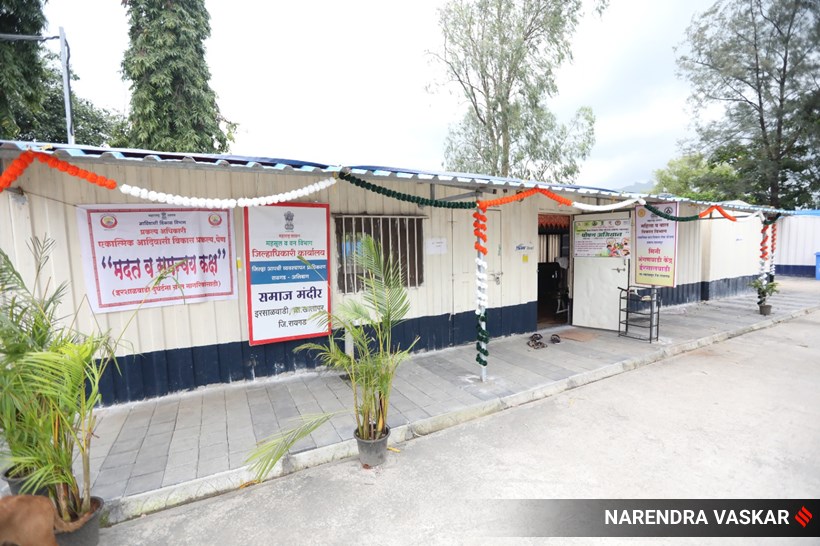
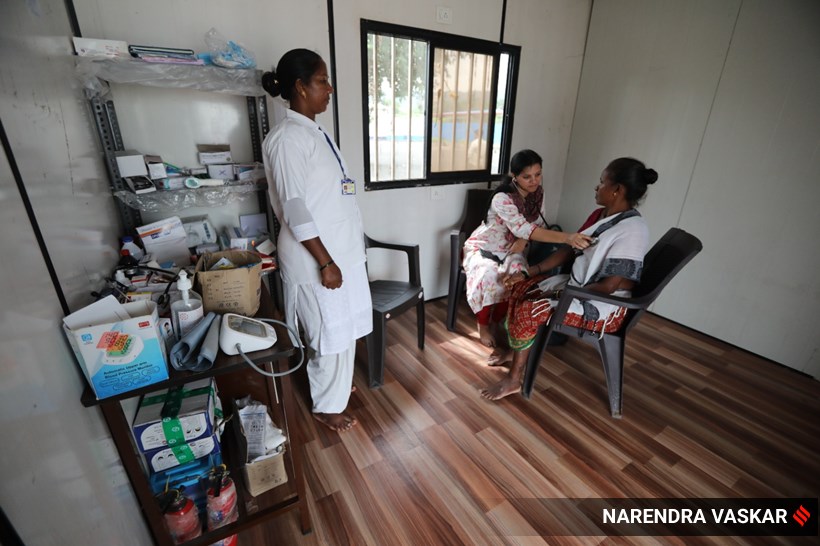
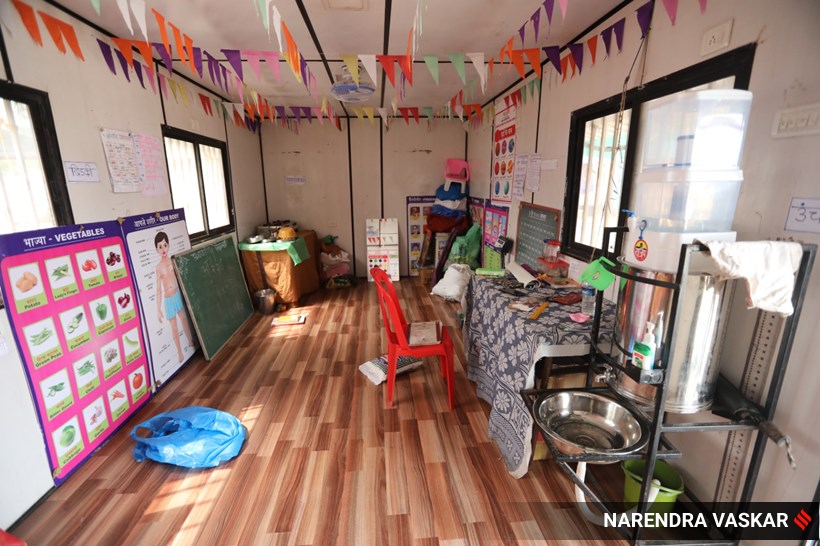
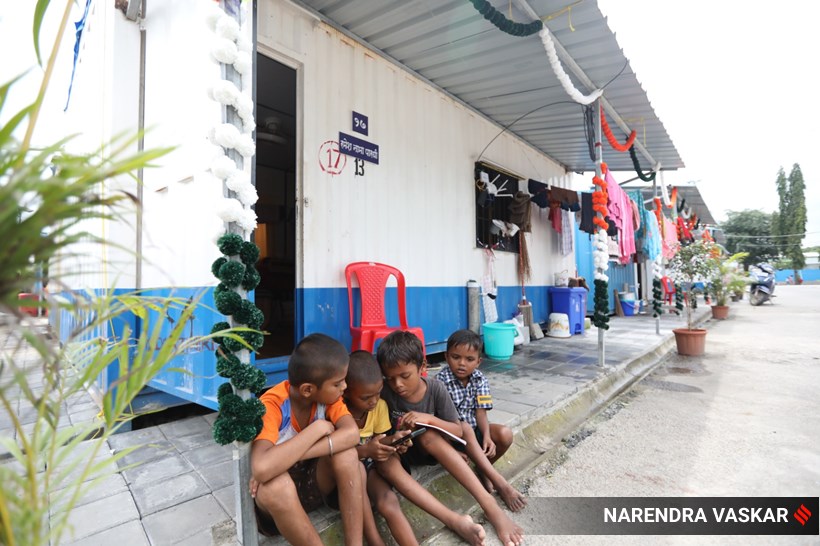

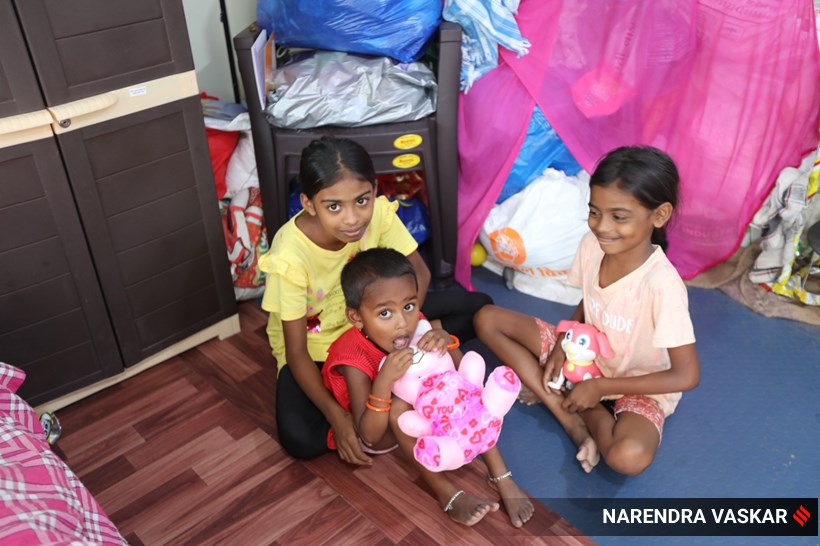
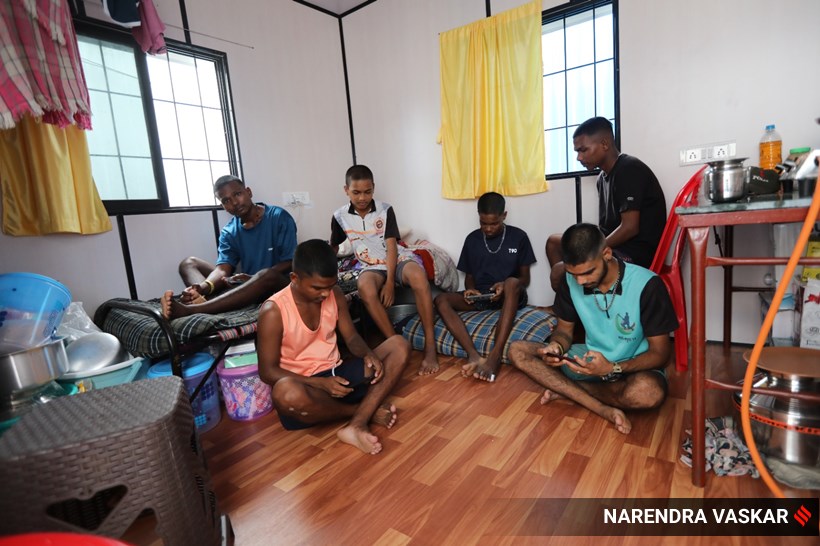
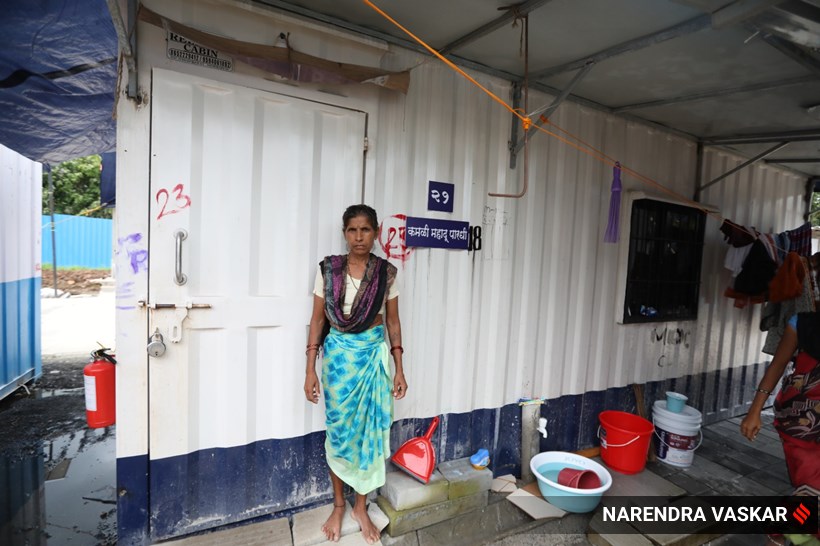
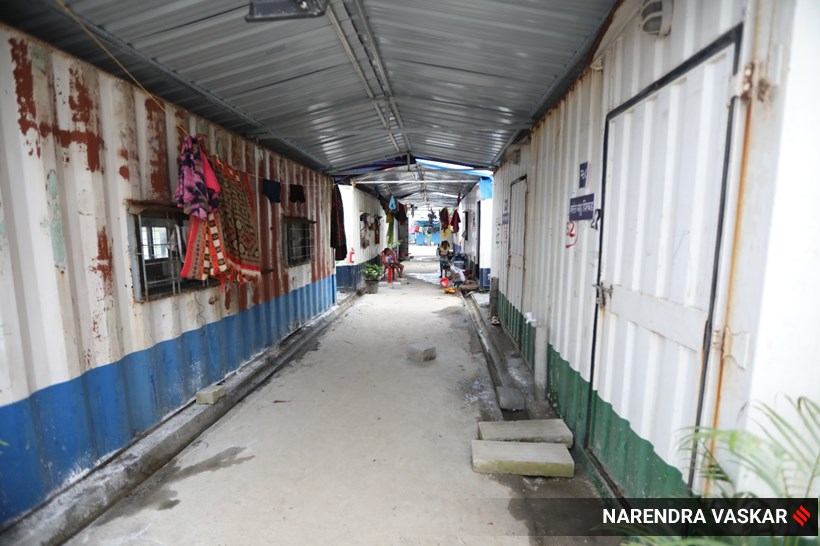
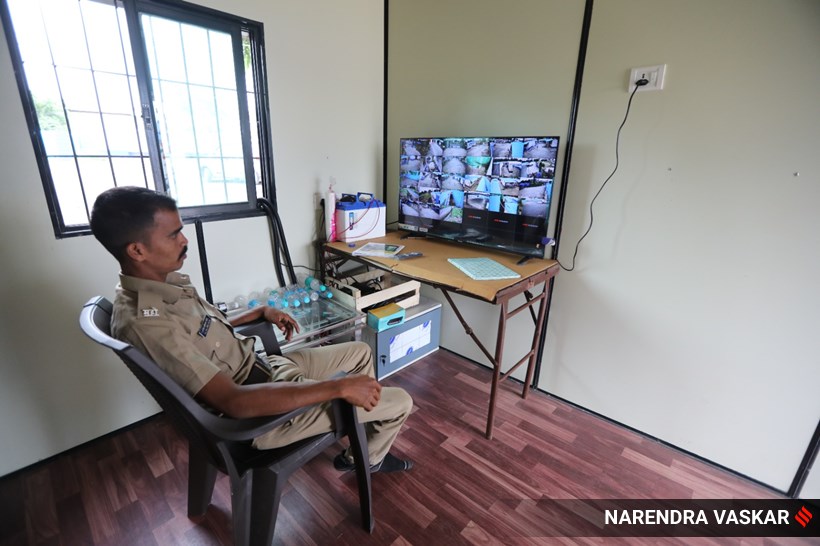
 With the wounds of the tragedy still raw, many are struggling in Chouk. (Express photo by Nayonika Bose)
With the wounds of the tragedy still raw, many are struggling in Chouk. (Express photo by Nayonika Bose)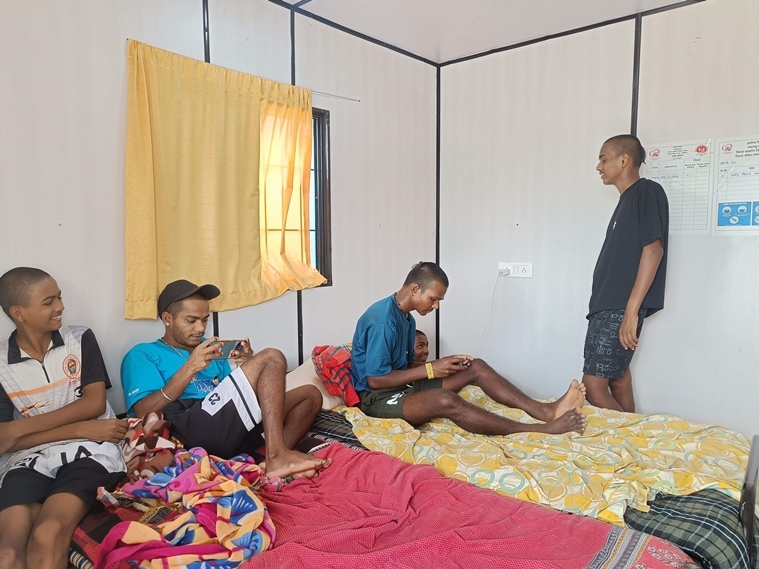 Boys playing PUBG at a container in Chouk village. (Express photo by Nayonika Bose)
Boys playing PUBG at a container in Chouk village. (Express photo by Nayonika Bose) With breakfast, lunch, tea and dinner served in the community kitchen, the cooking space in most containers is mostly unused. (Express photo by Nayonika Bose)
With breakfast, lunch, tea and dinner served in the community kitchen, the cooking space in most containers is mostly unused. (Express photo by Nayonika Bose)
